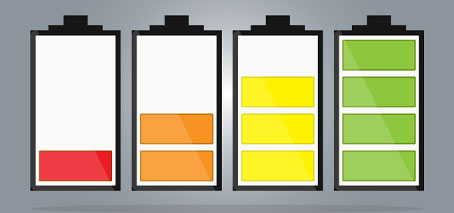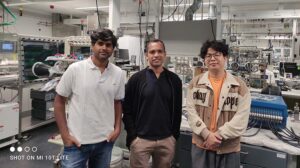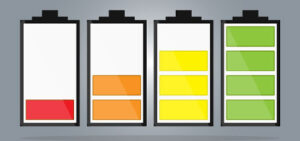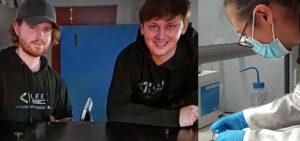FLEET Translation funding is progressing zinc-ion battery technology, which offers decreased costs, safety, and improved environmental outcomes.
Current commercial batteries are primarily based on lithium-ion technology, which is expensive and has significant safety concerns owing to incorporation of flammable organic materials.
The proposed aqueous zinc-ion battery technology boasts improved safety (no toxic or flammable components), low-cost manufacturing, and recyclability.
The team at UNSW were able to address a key challenge that has been the blocking point for zinc-ion battery technology to date: “Until now zinc-ion batteries have been held back by their electrodes degrading too fast,” explains project lead Dr Dipan Kundu, a Senior Lecturer at UNSW.
Along with co-lead Dr Priyank Kumar, who is a FLEET CI at UNSW, they remark “We have invented a scalable solution that would extend the cycle-life of the electrodes in this technology.”
The invention fundamentally enables the commercial use and deployment of zinc-ion battery storage.
FLEET Translation funding will allow the team to take the next step. Currently, the team has an alpha prototype battery that functions well based on the invention. However this prototype system requires further experimental work to optimise it and demonstrate commercially-useful operation. The FTP-funded project will directly optimise key electrolyte and other device parameters, and enable building a beta prototype battery showing commercially utility. The project aims to achieve this using a combination of experiments, theory and machine-learning methods.
FTP funding is expected to help push the Technology Readiness Level (TRL) from 3 towards TRL 4. “This will put us at a stage for fund raising from venture capitalists and government agencies,” says Priyank.
Aqueous zinc-ion batteries are primarily applicable for residential and large-scale storage applications. For example, as household battery storage alongside rooftop solar panels.
“Once developed, our aqueous zinc battery technology can unlock hundreds of gigawatts of residential, industrial, and grid storage capability and accelerate global pursuit toward a fully decarbonised energy grid,” says Dr Kundu.
At the same time, members of the team develop key new skills.
“Working on this project has helped me realize that commercializing a lab-based technology is exciting and at the same time, brings out new challenges,” says Yuan Shang, a PhD student with Dipan Kundu and a co-inventor of this technology. “I look forward to taking the next steps.”
“The FTP program has been rewarding, in that it has helped us think beyond science and don the equally important entrepreneurial hat! We thank Michael Harvey and the FTP team for their support and advice.” — Priyank Kumar
FLEET’s Translation Project (FTP) identifies Centre members with the desire and capability to translate their research, and shepherds those projects towards commercialisation via funded HDR translation stipend, Translation Fellowships, and project facilitation funding.
Contacts
- Dr Priyank Kumar (FLEET Chief Investigator) priyank.kumar@unsw.edu.au
- Dr Dipan Kundu (Senior Lecturer, UNSW) d.kundu@unsw.edu.au






